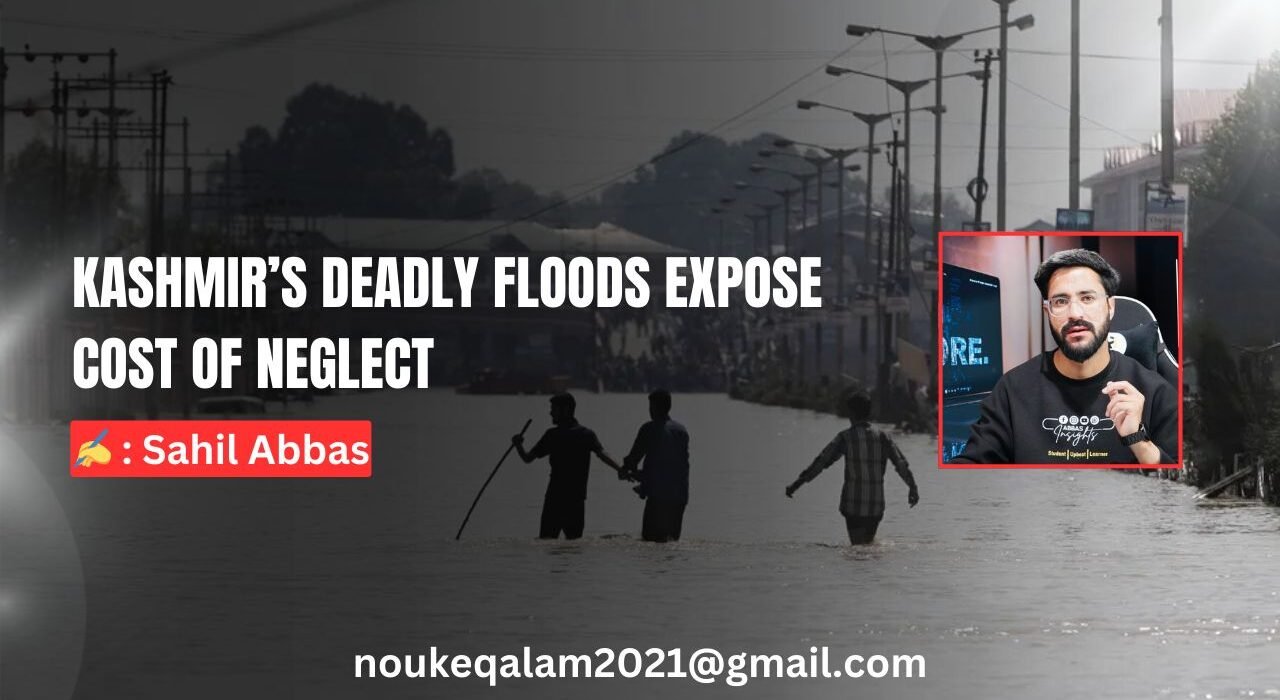✒️:. Sahil Abbas/ Magam
The Himalayas remember every tree we fell and every warning we ignore.
When the Mountains Wake
They say nature doesn’t forgive—because it remembers. In Kashmir, the mountains remember every felled tree, every illegal road, every warning ignored. And this monsoon, they woke with a roar.
On August 14 in Chositi, Kishtwar, the sky cracked open. Pilgrims resting along the Machail Mata route heard what sounded like thunder—but within minutes, walls of water and rock came crashing down. Camps, families, even children were buried where they stood. At least sixty lives ended before anyone could run.
Weeks later in Kathua, parents dug through landslide debris with bare hands, searching for their children. In Doda, families watched their homes crumble as torrents ripped through village walls. Across Jammu & Kashmir, more than 700 lives have been lost in just three months. These are not statistics. They are farmers, students, shopkeepers—ordinary lives ended by extraordinary violence.
Why this fury?
Because we stripped the slopes bare. Trees cut illegally, hillsides carved for roads, rivers crowded with construction—we weakened the land until it could no longer hold itself together.
Because the planet is running a fever. With global temperatures 1.1–1.3 °C hotter than before industrialization, the monsoon now veers wildly between drought and deluge. And in the Himalayas, that volatility turns lethal.
And because we forgot. In 2014, floods drowned Srinagar. We fled, rebuilt, then went back to sleep. We called it an “act of God” instead of a warning. Eleven years later, the same mistakes returned, crueler.
A simple lesson from the land
Picture a terraced hillside. Each step holds water, slowing its fall. Remove the steps—cut the slope, clear the trees—and one downpour will bring the whole hillside crashing down. That is Kashmir today: defenses dismantled, waiting for the next blow.
Who must answer?
Authorities cannot keep treating mountains as real estate. Forests are not obstacles; they are shields. Early-warning systems and resilient infrastructure are not luxuries; they are lifelines.
And we, the people, are not innocent. We settle floodplains, ignore warnings, and mistake negligence for destiny. Every illegal wall or hut on a riverside is a wager placed against the lives of our neighbors.
Wake up, now
The floods of 2014 were a whisper. This year was a shout. If we do not act, the next cry will be a scream—and it will sound like villages breaking, bridges collapsing, children being carried away.
The mountains have woken. The only question is: will we?
(Author hails from Magam Budgam. He studies at Media Education Research Centre, University of Kashmir.)




